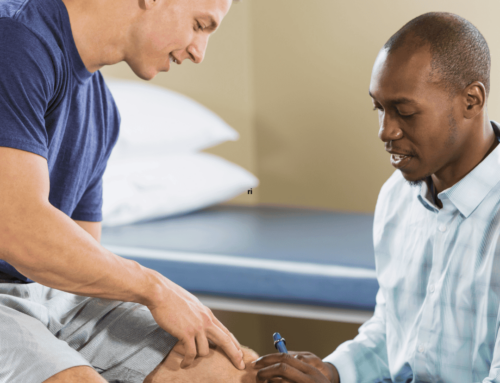I’m Dr. Hassan, a Board-Certified Physiatrist and Independent Practice Owner. I help physiatrists start and grow their profitable practices so they can achieve financial independence and live without limits.
One of the best things you can do to grow your physiatry practice is educate people about what you do. One of the best ways to educate people about what you do is through acute-care hospital consults.
Acute-care hospital consults touch and educate those who can send you patients.
As such, you want to be very targeted in your approach in terms of “Who is responsible for sending patients to the next level of care?” In most hospitals and hospital systems, that is your case managers and your discharge planners. An effective way of doing so is by arranging a lunch or another platform that positions you in front of them to educate them on your definition of an ideal acute in-patient rehab patient.
In doing so, you set the tone and expectation while giving them a better idea of what to look for while assessing patients. This allows you to arrange things in your favor in terms of getting patients you feel more comfortable with. You also want to take a similar approach with the physical therapist in the hospital system that you’re working in.
When physical therapists are assessing patients, you want them to look for certain patients and certain criteria. Guide the conversation with this in mind. It also benefits you when they document in such a way that gives you the best chance to get that patient to acute in-patient rehabilitation—particularly regarding patients with commercial insurance. Your consult gives physicians and therapists the necessary information to document in your favor.
Be strategic in your acute-care consults with specialists.
Those are going to be the specialists who care for patients who have the particular diagnoses that you’re looking for: trauma surgeons, neurosurgeons, ortho-trauma, cardiologists, intensivists, nephrologists, neurologists. Discuss disease-specific diagnoses with the hospital’s different physicians.
- Intensivists: critical illness, myopathy and polyneuropathy
- Nephrologists: uremic myopathy
- Neurosurgeons: traumatic brain injuries and non-traumatic brain injuries
- Ortho-trauma: hip fractures and major multi-trauma
Also strategize how you’ll talk to various physicians about their patient population while including how they will benefit from acute in-patient rehabilitation. That’s going to be one of your biggest tools in terms of growing your business. Those are the some of your individual benefits, for your particular practice.
On a macro level, acute-care hospital consults educate the healthcare community as a whole about the physiatrist specialty: how we can help as well as how we fit into the post-acute care continuum; assist in increasing outcomes and decreasing readmission; and get patients better, back home, and returned to their prior level of function.
For more practice tips, check out my FREE video course on building a highly profitable medical practice in as little as 90 days at http://www.sixtytosuccess.com.
—
I’m Dr. Hassan, a Board-Certified Physiatrist and Independent Practice Owner. I help physiatrists start and grow their profitable practices so they can achieve financial independence and live without limits. Follow me on social media @DrHassanRehab.







